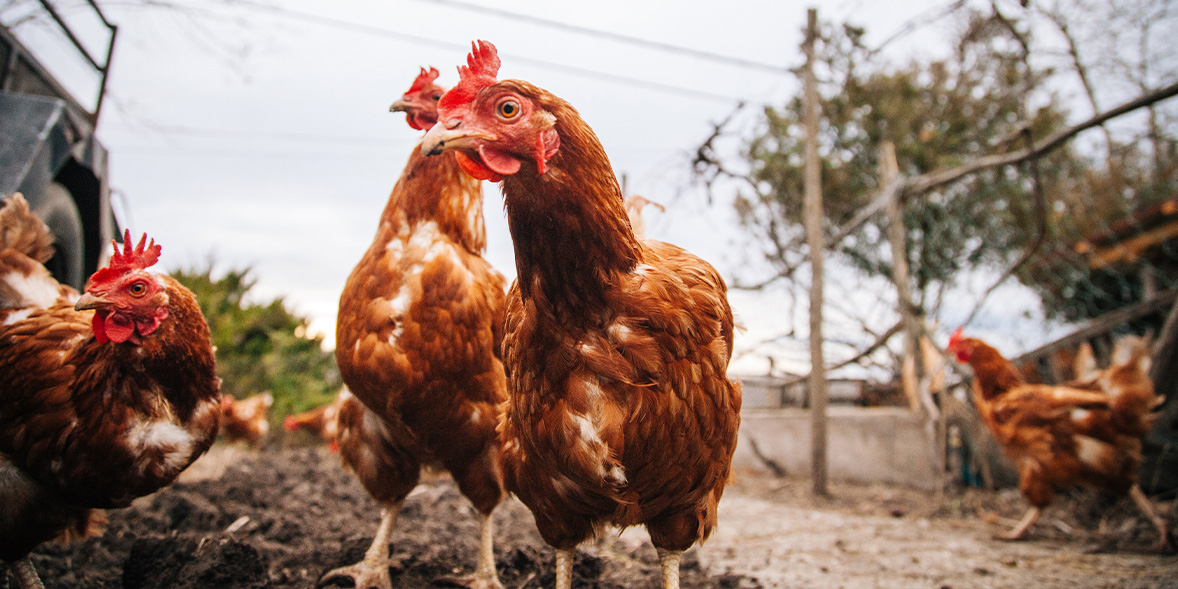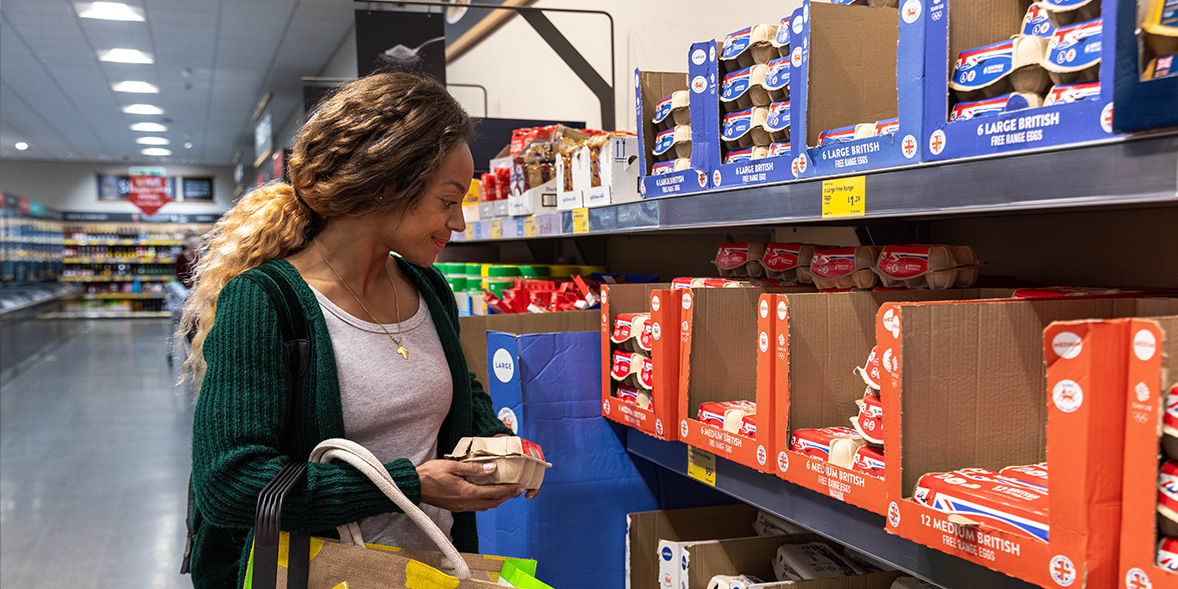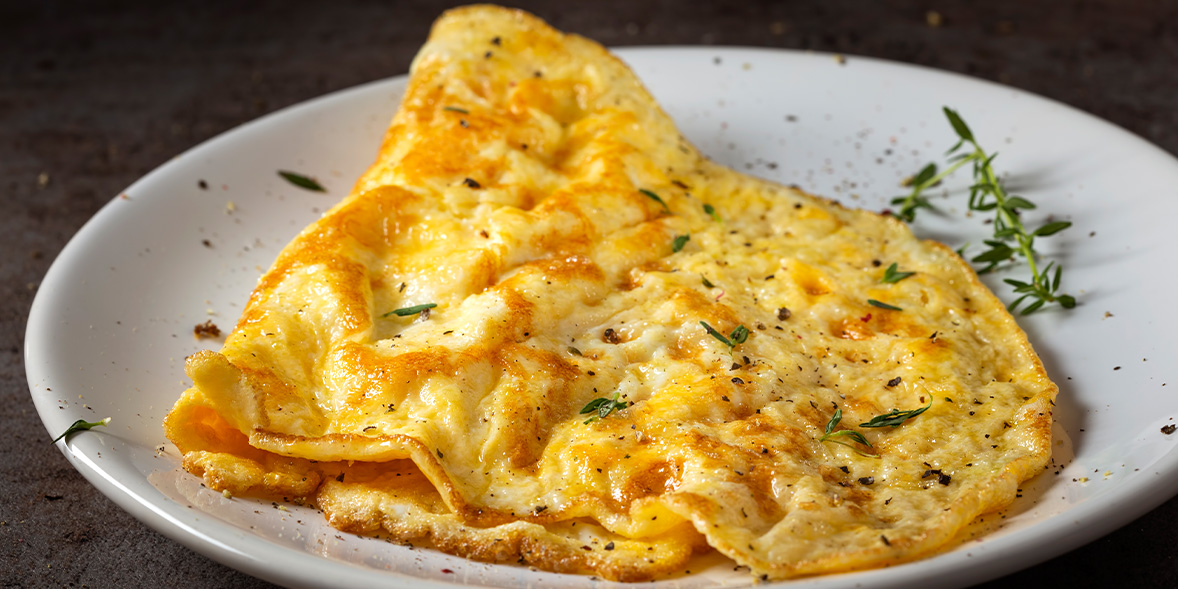You might have seen a number of reports about egg shortages in recent weeks. So what's going on?
The short answer is a serious ongoing outbreak of avian flu, which is causing problems in the supply chain. This has led to some empty shelves, and some supermarkets rationing how many boxes of eggs people can buy.
Some supermarkets are also importing eggs from abroad to fill gaps in supply, but this has proved slightly controversial and prompted the British Industry Egg Council to issue a safety warning.
We run through what's going on, who's rationing what, and what to do if you're struggling to get hold of eggs - whether you need alternative budget protein options, or ways to get your festive baking finalised.
Sign up to our free Food & Health newsletter for tips on living well and saving money on your shopping
What's causing the UK egg shortage?

A widespread and ongoing outbreak of avian flu has disrupted the supply of eggs. During the outbreak, by law birds need to be housed indoors to minimise the spread.
However, if a hen becomes infected, especially one housed indoors in close proximity to others, the virus can spread quickly.
If one hen in a flock is infected, the entire flock needs be culled, which leads to substantially fewer hens laying eggs.
According to the government, the current outbreak, which has been going on since last year, has killed 3.8 million birds in the UK and 97 million globally.
A Defra spokesperson told us: "There are 38 million laying hens across the country and we are not expecting any significant impact to the overall supply" and added they "are working with industry to monitor the market", though this doesn't appear to wholly tally with the situation on supermarket shelves.
The British Egg Industry Council has said that there are other factors contributing to the shortage too, namely the rising costs that farmers have faced in the past year.
It says that as costs have soared many egg farmers have had no choice but to cease production.
The British Free Range Egg Producers Association said: "Egg producers have been hit with huge price hikes in production costs. Feeding hens is now at least 50% more expensive than it was, spending on fuel has grown by 30%, while labour and packaging also costs more.
In March we asked for a 40p per dozen rise in egg prices at retail level and for the additional money to be passed down the chain to producers. While egg prices have risen by about 45p, most farmers have only received 5-10p of that rise".
Andrew Opie, Director of Food & Sustainability at the British Retail Consortium (BRC) said: "Supermarkets know they need to pay a sustainable price to egg farmers but are constrained by how much additional cost they can pass onto consumers during a cost-of-living crisis".
Should we be worried about food shortages? - why they're more common at the moment, and how to manage
Supermarkets introduce buying limits on eggs

To cope with the current shortage, which has seen some empty shelves, some supermarkets have introduced temporary limits on the number of eggs customers can buy to try and ensure availability for everyone.
This may also have been exacerbated by widespread reports of shortages potentially causing a spike in demand.
When we contacted the supermarkets this is what they told us:
- Asda: Asda has introduced a limit of two boxes of eggs per customer (across all tiers and ranges).
- Lidl: Current limit is three boxes per customer.
- M&S: Due to a recent spike in demand M&S has introduced a limit of two boxes per customer.
- Morrisons: Due to an unprecedented demand Morrisons has introduced a cap of two boxes per customer.
- Ocado: Has introduced a 30 egg per order limit.
- Sainsbury's: No limits on egg purchases.
- Tesco: Has introduced a temporary limit of three boxes per customer.
- Waitrose: Demand is increasing and Waitrose continues to review the situation on a daily basis but no current limits on purchases.
Aldi, Co-op and Iceland didn't respond to our enquiries.
BRC director Andrew Opie added: "While avian flu has disrupted the supply of some eggs ranged, retailers are experts at managing supply chains and are working hard to minimise the impact on customers.
Furthermore, retailers have long-standing established relationships with their suppliers and know how important maintaining these are for their customers and businesses".
What are supermarkets and shops doing to help with the cost of living crisis? - we look at what help is on offer
Are there safety concerns around eggs right now?

You don't need to worry about the flu side of it - you can't catch bird flu from eating eggs (or cooked poultry), even in an area where there's an outbreak.
But there are some concerns about imported eggs posing a risk to certain vulnerable groups.
There have been reports of non-UK eggs filling gaps on supermarket shelves, for example at Sainsbury's.
The British Egg Industry Council said: "It is very disappointing to see foreign eggs on supermarket shelves. Our research shows that British consumers want and expect eggs to be home produced which offer them the highest standards. It is important that retailers clearly mark imported eggs".
James Cooper, Deputy Director of Food Policy at the Food Standards Agency (FSA) told us: "Most people can eat runny or raw eggs whether they come from UK hens or have been imported. But babies, children and elderly people should only eat runny or raw eggs if they have a British Lion mark or are produced under the Laid in Britain egg assurance scheme.
This advice does not apply to those that have weakened immune systems."
Best food and drink - see all the top-rated food from our independent taste tests, including the best festive fare, from fizz to mince pies
What to do if you can't get hold of any eggs

First of all, don't panic and only buy what you need. Most supermarkets who have introduced limits on purchases told us they did this in reaction to customers bulk buying eggs, rather than the shortage itself.
Stock is replenished regularly, and supermarkets work hard to minimise gaps on shelves, so you shouldn't have to wait too long or go too far to get hold of some.
When you do, try to ensure they don't go to waste. In the UK, eggs are labelled with a best before date which is 28 days from the date the egg was laid.
As long as they have been stored in the fridge, the FSA says they can be eaten after the 'best before' date, but they should be cooked through so that the white and yolk are solid, or used in dishes such as cakes where they will be fully cooked.
How to tell if your egg is fresh - watch our handy video guide to using eggs safely and minimising waste
Egg alternatives for baking, protein and more

If you are struggling to get hold of eggs when you need them there are other ingredients you can replace them with, depending on what you're cooking.
Cakes and baking: eggs can be replaced with ground flax seeds soaked in water, apple puree, mashed banana and yoghurt. BBC Good Food has handy quantity suggestions.
Meringues: Aquafaba, the leftover water from a drained can of chickpeas, is protein rich and can be whipped up and used in place of egg whites. It's popular as an egg white replacement in recipes, such as meringues.
Tofu: Whipped silken tofu can replace eggs in chocolate mousse or even a vegan cheesecake. Firm tofu can be mashed and fried with turmeric (and maybe some onions) to replace scrambled eggs.
Find out more about different veggie protein sources and meat alternatives in our plant-based meat substitutes guide.
Why are eggs so popular?

Eggs are relatively cheap and nutritious. They're a good source of protein, with a medium egg containing around 6g of protein.
They're also a good source of other nutrients - vitamins A, folate, B12, D and E, iodine and omega-3 fatty acids.
They're quick to cook, versatile and can be enjoyed at breakfast, lunch or dinner. But there are lots of alternative sources around if you find them hard to come by, including pulses and veggie proteins such as tofu.
Are expensive eggs the best? We look at the different types and uncover the secrets of supermarket egg selling
source https://www.which.co.uk/news/article/uk-egg-shortage-whos-rationing-packs-egg-safety-warning-and-what-the-problem-is-aD2o92E97swV
